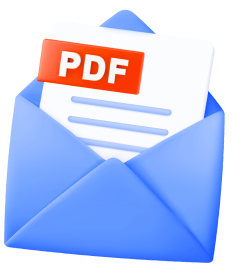
The Ultimate English Marketing Vocabulary Guide For Your Career Success
To help you sell to customers in the English-speaking globe, improve your products, and increase sales, we’ve prepared a guide to marketing English terminologies.

Get a FREE guide!
Want to sound like a native English speaker?
Get our free PDF with top tips that work.

Check your email!
Go above and beyond the corporate English jargon by capitalizing on the power of business English for marketing professionals. Let your marketing team become familiar with every other term and aspect related to marketing, sales, and product development.
Take advantage of LiveXP’s streamlined platform for corporate English training to help your marketing professionals learn corporate English and marketing-specific terminologies. While you decide the right time to enroll your employees in this learning program, we have something valuable prepared for you.
To help you sell to customers in the English-speaking globe, improve your products, and increase sales, we’ve prepared a guide to marketing English terminologies. Share this with your marketing team to help them understand the distinctive function of the English language in marketing worldwide.
Significance of English marketing vocabulary in today’s corporate world
You must manage marketing discussions, whether at a networking event, a team conference, or finishing a significant business deal with a customer. Without a solid command of English marketing vocab, you’ll soon find yourself drowning in a sea of jargon and strange phrases.
With proficiency in all the English marketing jargon, the entire marketing team can converse more confidently with not only their clients but with each other. Moreover, there won’t be any worries about facing embarrassing circumstances.
Imagine unintentionally breaking a contract with a client because you didn’t completely comprehend it or completing an SEO project incorrectly because you misread the client’s requirements. You can avoid wallowing in humiliation or legal challenges by getting familiar with a few fundamental marketing phrases.
Most important business English words for marketing professionals
Advertising
When in marketing, you’ll often come across the term advertising. It is an element of success for all products you promote during a marketing campaign (later on that). Advertising means promoting a product or service via paid announcements in magazines, newspapers, social channels, radio, and television.
Mass media
Any form of communication that draws in a sizable number of people can be referred to as mass media. as well as major publications like The New York Times and television networks with international broadcasts.
Brand
A brand is a specific product or a quality that distinguishes one thing from another. All day, every day, well-known brands are all around us. From Hershey’s and Lays to Pepsi and Adidas, you have come across the names of several brands in your life. (Keep the hard work going; someday, these brands will become your clients!)
Motto/Slogan
When it comes to business English marketing jargon, no one should miss knowing what a motto or slogan is. Remember when McDonald’s had a giant “I’m Lovin’ It” sign? That is a slogan. A motto or slogan is nothing but a catchphrase marketers use to promote a brand on a more personal level. The more appealing the slogan, the more successful the marketing campaign.
Logo
A company’s logotype is a compact method to phrase “logo,” and it is the visual representation of the business. It might be the brand’s name, an acronym, or a visual representation of the company (like Lacoste or Pepsi).
Wholesale pricing
Wholesale price, one of the most crucial words for marketing, is a must-know for teams operating as a distributor or retailer in the market. When someone buys numerous items from the same business or person, dealers often offer them a discount known as wholesale pricing.
Appointment
If you intend to lead a very busy professional life, you’ll have no shortage of these. Since appointments are set times, you should endeavor to arrive on time, keep them in mind, and possibly write them down.
Generic English marketing language terms
Every effort you make to spread awareness of your brand is considered marketing.
Online marketing operations:
Activities to promote exposure that takes place online or through mobile applications are called “online marketing activities/operations.” Messages sent via SMS, email, and digital advertising are examples of this.
Offline/Traditional marketing activities:
Marketing activities that take place outside the Internet are referred to as offline marketing activities. This could involve live demonstrations, billboards, print ads, mailed newsletters, fliers, and many other things.
Marketing campaign:
This is an advertising pitch you need your target demographic to remember. Multiple diverse ways are used to send a single message. Through both offline and online marketing initiatives, you will convey this message.
Typically, a business promotes a certain marketing initiative for a set amount of time. But if the marketing initiative is a big success, they might keep using it.
Marketing goal/objective:
Your campaign’s marketing objective describes what you hope to achieve. Maybe you want to meet a sales target or a target audience. Your justification for initiating the marketing action is a marketing objective.
Example:
We want at least 20,000 visitors to enter our store in April as part of our marketing goal for the summer print campaign.
Campaign reach:
You must have personnel tracking and evaluating the data to determine the success of your campaign. Data will demonstrate the number of people who view or interact with the campaign materials.
Example:
My advertising campaign cost me $1,000, and it reached roughly 10,000 people. That equals 10 cents for each advertisement viewed.
Marketing collateral:
The media and content utilized to market your goods are called “marketing collateral.” Most of the time, this relates to materials like PowerPoint presentations, brochures, white papers, and other similar things rather than advertisements.
Example:
We must update our marketing materials and design some eye-catching brochures and leaflets.
English marketing vocabulary for digital marketers
How goods and services are promoted online is referred to as digital marketing. To make the most out of your digital marketing campaigns, your team must be familiar with all these digital marketing English terms:
Ad Targeting
The practice of showing people using social media or online browsing websites personally relevant adverts. Using data from a person’s web surfing history, web searches, and online spending patterns, algorithms (mathematical formulas) automate this process.
Keywords & long-tail keywords
One or two-word search queries on the internet are known as keywords. Meanwhile, long-tail keywords are specific online search terms that are more than three words long.
SEO & SERP
To maximize the possibility that a website will be placed on the first page of the SERPs and be viewed by more people, search engine optimization, or SEO, uses tactics like relevant keywords and external links to other web pages. Meanwhile, Search Engine Results Pages (SERPs) are a list of websites showing up after a web search on search engines like Google.
PPC
Pay-per-click is a form of engaging online advertising in which advertisers are charged a small fee each time a website visitor clicks on a PPC ad to get additional details. PPC advertisements come in various forms, such as social media ads, instream commercials, and paid search ads.
A/B testing
It is the process of comparing the performance of two different iterations of a marketing or email campaign.
English marketing vocabulary for product, growth, & competition
The labor of salespeople and marketers doesn’t stop after a product is launched (put on the market for purchase). To make your marketing campaigns a hit every time, be familiar with these terms and eventually become an expert in them.
- Raw Materials: Materials such as metals, textiles, or (in the case of food producers) grains or sweeteners required to produce completed goods are known as raw materials.
- Finished Goods: These items are ready for sale due to the production process.
- Retail: Products with a low minimum order quantity and a large profit margin.
- Wholesale: Goods offered at a discount when purchased in bulk (big numbers) and frequently through a B2B (business-to-business) transaction.
- Landed Cost: The whole cost of getting a finished product to market is called the “landed cost.” Raw materials, labor, production tools, advertising, and shipping are all included in this price.
- Profit Margin: The amount of money a business makes from a sale after subtracting the cost of production, labor, and transportation from the selling price.
- Inventory: It is the supply or stockpile of finished goods that is on hand to meet upcoming orders.
- Product Development: The process of designing and modifying a product to better fulfill the needs of potential customers.
- Product Line: These are related goods made by the same business, such as power tools from DeWalt or food storage containers from Rubbermaid.
- Target Audience: The people for whom a product was designed or developed are known as the target audience.
- Feedback: Details regarding the advantages and shortcomings of a good or service.
- Focus Group: It is a collection of people who volunteer to provide input on a product or advertising campaign and are members of the target market.
Wrapping up
There you have it! Now, the usual recommendation is to try corporate English training or business English classes with a trained instructor for real, one-on-one tutoring to increase your employee’s comfort level using these English marketing words.
Your marketing team may successfully navigate the vast English-language marketing landscape with much practice and LiveXP’s business English courses.
















